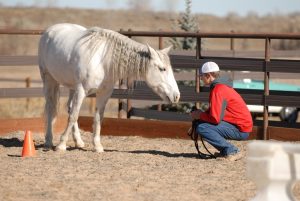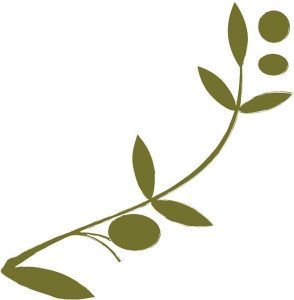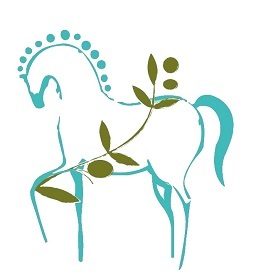Have you been in therapy for years, but don’t really feel any better?
Are you struggling with PTSD, trauma, depression, anxiety, or relationship issues?
Have you been searching for an alternative to talk therapy that allows profound change to happen quickly and naturally?
Are you wanting to heal from the inside out while enjoying a sense of peace and connection?
Have you always been drawn to the healing power of horses?
Welcome to Amani Farm where Equine Assisted Psychotherapy (EAP) could change your life! can help!

Here, we combine cutting edge ideas in neurobiology with “the way of the horse” to help you heal. Clients often realize quick and profound results when doing this work. It goes deep fast, yet is gentle and empowering. This is because you are experiencing therapy with you body and heart, as opposed to just your mind. It’s not about talking. Rather it’s about experiencing what happens. In fact, a lot of the work is done in silence and is contemplative. It can give you an opportunity to simply be while experiencing the empathic presence of the horse. Consequently, you may experience deeper levels of calm, connection, engagement, and acceptance than you have ever felt before.
Equine Assisted Psychotherapy allows you to do more than just process life’s challenges. You can actually change the “wiring” of your brain by building new neuro-pathways. This creates lasting results. Furthermore, equine sessions can be combined with Brainspotting for even greater impact and more profound healing.
At Amani Farm we specialize in working with adolescents, teens, couples, women, veterans experiencing PTSD, trauma, anxiety, depression and relationship issues. We work with clients of all ages, families, individuals, and groups. You do not need to have horse experience or be a “horse person” to benefit and enjoy the experience.
Why horses?
We use horses because they are prey animals, hypersensitive to their environment. All work is done on the ground with the horses serving as co-facilitators. The horses’ sensitivity allows them to respond and often mirror human emotions in an obvious and non-judgmental fashion. Simply put, horses don’t have an agenda; they just tell it like it is. When horses communicate through their actions, clients get a lot of information and are able to gain insight in a quick and gentle fashion.
What happens in a session?
Most of the time clients are with one to three horses who are loose in the arena. Clients are invited to do simple activities with the horses. Then they are asked to describe what happened for both them and the horse while doing the activity. Commonly, what takes place is a metaphor for something in the clients’ life. Because horses are so empathic, they behave very differently around different clients. They also respond to the varying moods, thoughts, feelings, and body language of a client. Clients find it hard to “fake it” around horses. This is what allows change to happen so quickly.
In addition, while we are in arena where we work, people behave in much the same manner as they do in their daily lives. They bring their mind, body, and spirit into the session in a way that is not always possible when using conventional talk therapy. Working in the felt sense of the horse provides unique opportunities that otherwise may not be experienced. Sometimes, just one or two equine sessions can be transformative.
Is there any riding involved?
Generally, with EAP there is no riding involved. This is because the horses are co-facilitators in the session. That means their job is to just behave in their natural intuitive state and to respond to the client naturally without any agenda. However, on rare occasions, clients will ride if it serves a therapeutic purpose and if it is their desire to do so.
Who facilitates the session?
Jill Cantor Lee LPC facilitates all equine assisted sessions. Besides being a trauma therapist, she is a life-long horse woman and international level dressage competitor. She combines techniques from the teachings of the Equine Assisted Growth and Learning Association (EAGALA) with concepts of classical and natural horsemanship. This allows her to provide clients with a unique and powerful experience tailored to meet their individual needs. Jill’s life long horse experience and intuition inform her ability to serve clients. All of this, combined with the lovely herd, beautiful setting, and richness of the natural world makes this work invaluable.
What safety precautions are taken?
The safety of horses and people at Amani Farm is a paramount concern. This includes emotional as well as physical safety. Jill’s EAGALA training, coupled with over 50 years of horse experience has given her the ability to read horses and competently promote safety. She is equally as vigilant about the care and well being of the horses. Generally, the work done with the horses is slow, quiet, and gentle. It presents little physical risk. However, the same qualities that keep people safe in their daily lives will also serve to help them with the horses. For instance being present, having an awareness of ones own as well as others’ body language, being respectful, and having good boundaries, all promote safety in life and in the arena. While clients are working on developing these skills, Jill will “spot” them with the horses.
What clients have said about Equine Assisted Psychotherapy at Amani Farm
“I feel so much more calm. I know I will be okay no matter what happens.”
“This work has literally saved my life.”
“I have been going to therapy for years, yet I have never learned so much about my self and had fun while doing it!
“I feel like a new version of me.”
“My child is like a whole new person. Things at home and at school are so different!”
“I can’t tell you how working with the horse shook me to my core. I can’t even put words to it”

“When God created the horse, he said to the magnificent creature: I have made thee as no other. All the treasures of the earth shall lie between thy eyes.” ~The Koran
